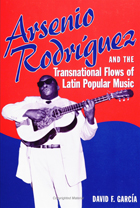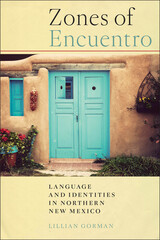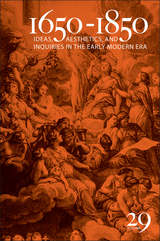162 books about Cuba and 4
start with A
162 books about Cuba and 4
162 books about Cuba
4 start with A start with A
4 start with A start with A

Acoustic Properties
Radio, Narrative, and the New Neighborhood of the Americas
Tom McEnaney
Northwestern University Press, 2017
Acoustic Properties: Radio, Narrative, and the New Neighborhood of the Americas discovers the prehistory of wireless culture. It examines both the coevolution of radio and the novel in Argentina, Cuba, and the United States from the early 1930s to the late 1960s, and the various populist political climates in which the emerging medium of radio became the chosen means to produce the voice of the people.
Based on original archival research in Buenos Aires, Havana, Paris, and the United States, the book develops a literary media theory that understands sound as a transmedial phenomenon and radio as a transnational medium. Analyzing the construction of new social and political relations in the wake of the United States’ 1930s Good Neighbor Policy, Acoustic Properties challenges standard narratives of hemispheric influence through new readings of Richard Wright’s cinematic work in Argentina, Severo Sarduy’s radio plays in France, and novels by John Dos Passos, Manuel Puig, Raymond Chandler, and Carson McCullers. Alongside these writers, the book also explores Che Guevara and Fidel Castro’s Radio Rebelde, FDR’s fireside chats, Félix Caignet’s invention of the radionovela in Cuba, Evita Perón’s populist melodramas in Argentina, Orson Welles’s experimental New Deal radio, Cuban and U.S. “radio wars,” and the 1960s African American activist Robert F. Williams’s proto–black power Radio Free Dixie.
From the doldrums of the Great Depression to the tumult of the Cuban Revolution, Acoustic Properties illuminates how novelists in the radio age converted writing into a practice of listening, transforming realism as they struggled to channel and shape popular power.
Based on original archival research in Buenos Aires, Havana, Paris, and the United States, the book develops a literary media theory that understands sound as a transmedial phenomenon and radio as a transnational medium. Analyzing the construction of new social and political relations in the wake of the United States’ 1930s Good Neighbor Policy, Acoustic Properties challenges standard narratives of hemispheric influence through new readings of Richard Wright’s cinematic work in Argentina, Severo Sarduy’s radio plays in France, and novels by John Dos Passos, Manuel Puig, Raymond Chandler, and Carson McCullers. Alongside these writers, the book also explores Che Guevara and Fidel Castro’s Radio Rebelde, FDR’s fireside chats, Félix Caignet’s invention of the radionovela in Cuba, Evita Perón’s populist melodramas in Argentina, Orson Welles’s experimental New Deal radio, Cuban and U.S. “radio wars,” and the 1960s African American activist Robert F. Williams’s proto–black power Radio Free Dixie.
From the doldrums of the Great Depression to the tumult of the Cuban Revolution, Acoustic Properties illuminates how novelists in the radio age converted writing into a practice of listening, transforming realism as they struggled to channel and shape popular power.
[more]

After Love
Queer Intimacy and Erotic Economies in Post-Soviet Cuba
Noelle Stout
Duke University Press, 2014
Focused on the intimate effects of large-scale economic transformations, After Love illuminates the ways that everyday efforts to imagine, resist, and enact market reforms shape sexual desires and subjectivities. Anthropologist Noelle M. Stout arrived in Havana in 2002 to study the widely publicized emergence of gay tolerance in Cuba but discovered that the sex trade was dominating everyday discussions among gays, lesbians, and travestis. Largely eradicated after the Revolution, sex work, including same-sex prostitution, exploded in Havana when the island was opened to foreign tourism in the early 1990s. The booming sex trade led to unprecedented encounters between Cuban gays and lesbians, and straight male sex workers and foreign tourists. As many gay Cuban men in their thirties and forties abandoned relationships with other gay men in favor of intimacies with straight male sex workers, these bonds complicated ideas about "true love" for queer Cubans at large. From openly homophobic hustlers having sex with urban gays for room and board, to lesbians disparaging sex workers but initiating relationships with foreign men for money, to gay tourists espousing communist rhetoric while handing out Calvin Klein bikini briefs, the shifting economic terrain raised fundamental questions about the boundaries between labor and love in late-socialist Cuba.
[more]

Archaeological Adaptation
Case Studies of Cultural Transformation from the Southeast and Caribbean
C. Clifford Boyd
University of Tennessee Press, 2019
Archaeological Adaptation: Case Studies of Cultural Transformation from the Southeast and Caribbean honors the work of longtime University of Tennessee anthropology professor Gerald Schroedl, whose career encompassed fieldwork and research in both prehistoric and historic archaeology. Schroedl’s early career often focused its analysis on Mississippian and Cherokee sites, while his later years found him delving into historic archaeology in the Caribbean. Revisiting these touchstones of Schroedl’s work, editor C. Clifford Boyd here gathers essays around the disciplinary theme of documentation and analysis of change. Contributors study excavations in Tennessee, Virginia, South Carolina, wider southern Appalachia, and the Caribbean, providing insight into Native American, African American, and English civilizations. Artifacts, architecture, human and structural remains, and climatic and environmental factors yield insight into changing settlement patterns, tribal practices, material culture, economic and political power relations, and health and nutrition. A preface tracing Schroedl’s career and an afterword addressing developments in archaeological theory round out the volume.
[more]

Arsenio Rodríguez and the Transnational Flows of Latin Popular Music
David F. García
Temple University Press, 2006
Arsenio Rodríguez was one of the most important Cuban musicians of the twentieth century. In this first scholarly study, ethnomusicologist David F. García examines Rodríguez's life, including the conjunto musical combo he led and the highly influential son montuno style of music he created in the 1940s. García recounts Rodríguez's battle for recognition at the height of "mambo mania" in New York City and the significance of his music in the development of salsa. With firsthand accounts from relatives and fellow musicians, Arsenio Rodríguez and the Transnational Flows of Latin Popular Music follows Rodríguez's fortunes on several continents, speculating on why he never enjoyed wide commercial success despite the importance of his music. García focuses on the roles that race, identity, and politics played in shaping Rodríguez's music and the trajectory of his musical career. His transnational perspective has important implications for Latin American and popular music studies.
[more]
READERS
Browse our collection.
PUBLISHERS
See BiblioVault's publisher services.
STUDENT SERVICES
Files for college accessibility offices.
UChicago Accessibility Resources
home | accessibility | search | about | contact us
BiblioVault ® 2001 - 2024
The University of Chicago Press









